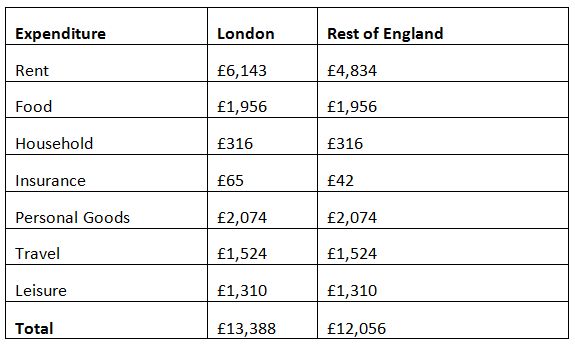Children’s Education Fee Planning

The cost of a good education can be expensive at the best of times, but for an expat family that cost can be much higher. It's important to plan ahead if you want to be able to give your children the best start in life.
Often, companies will pay for private schooling as part of an overseas relocation package. However, continuing to set aside sufficient money to cover school and university costs is important, because you never know where your next move will take you.
Families posted to undeveloped countries commonly find that the choice of international schools is limited. It is strongly recommended that you check your chosen schools are properly accredited by a recognised educational body. In developed countries, expat children may be allowed to study in state-funded schools, but there will often be a charge for access to the education system. The cost of a day-school place at an international school is about £20,000 per annum, but the costs do vary from country to country and school to school.
Planning ahead to cover the rising cost of university fees is another important issue, especially if your family has been living overseas for any length of time. Generally speaking, if your child is a UK national applying to a UK university, but has been living outside of the UK for the three years prior to applying, he/she may be classed as an international student. That means that they will liable for more expensive tuition fees and may not be eligible for student loans.
In 2013, undergraduates classed as ‘home’ students paid as much as £9,000 annually for their degree. However, the average costs for those classed as ‘overseas’ or ‘international’ students were a good deal higher, ranging from a minimum of £9,000 per year in the humanities to an annual £26,000 for a clinical education. To all this, you still need to add the daily cost of student living in the UK.
Being able to provide the best start in life for your child is of paramount importance, so looking at what that might cost may come as a bit of a shock. A frank conversation with an independent financial advisor will help you to prepare for what is ahead and make an affordable commitment to your child’s future.
Take some time to browse our directory, for an adviser with experience in the field you require.
FREE RESOURCES
Average cost of living for students in the UK
The annual cost of living for a student in the UK is determined by institution, course, and location, so it is difficult to provide an accurate guide to ‘average’ living costs. The figures below can be used as a rough guide if you live and study in the UK, but bear in mind that your costs and potential income may differ considerably. These figures were true in the term 2012/2013 and will increase with inflation.
- UK nationals and certain other people who have no restrictions on their stay in the UK, who have lived in the UK for at least the 3 year period immediately before (and including) the 1st September before the course starts.
- EU nationals who have lived in the UK for at least the 3 year period immediately before (and including) the 1st September before the course starts.
- EU nationals, and certain family members of EU nationals, who have lived in the European Economic Area for at least the 3 year period immediately before (and including) the 1st September before the course starts.
- People who have been granted formal Refugee Status in the UK, and certain family members of people with Refugee Status.
- People who have applied for asylum in the UK who have been refused Refugee Status but have been granted Humanitarian Protection (and certain family members).
- People who have previously been 'settled' in the UK (settled has a specific meaning), who have later moved to live elsewhere in the European Economic Area, for example to work, and are now returning to the UK.
- People who have acquired a 'right of permanent residence' in the UK; this normally applies to certain EU nationals and their family members, who have been living in the UK for the required period.
- European Economic Area and Swiss nationals (and family members) who are working in the UK.
- Children of a Swiss national.
- Children of Turkish nationals who are working in the UK.
Further Reading:






